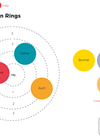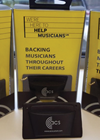ENT features
10 steps to improving transition to adult services
Children and parents like the reassurance that staying under the care of the team who looked after them from birth gives, but as the child approaches adulthood he / she must come under the care of a new team. This...
Ida Institute telecare tools help teens take charge of their hearing healthcare
In this article Ena Nielsen from the Ida Institute discusses new ways to put teens in the driver’s seat of their hearing healthcare needs. The teenage years can be a challenging time for any young person. When hearing loss is...
Using telehealth to engage teenagers
Can we use a teenager’s love of gadgets to re-engage them with their hearing technology? Gwen Carr reports on an innovative use of telehealth to support teenagers who are no longer visiting their hearing healthcare professionals. Parents of children and...
Exploring teenagers’ access and use of assistive hearing technology
Children require good signal-to-noise ratios for optimum listening and learning. The use of remote microphone technology can be of benefit, yet older children often resist using it. Jennifer Groth reviews the challenges facing older children in the use of remote...
Teenagers with misophonia
Misophonia can be a distressing condition for teenagers and can have devastating effects upon their home and school lives. There is little research in this area and, as Lucy Partridge explains, more is greatly needed in order to identify interventions...
Audiological evaluation and management of teenagers with tinnitus
There is a growing interest in investigating, understanding and managing tinnitus in children and adolescents, with several articles on the subject published in journals over the last year. Brian Fligor describes the approaches to consider when discussing tinnitus with teenagers....
The effects of leisure noise exposure on young people’s hearing
There is growing concern regarding the effects of leisure noise exposure on young people’s auditory system. Information provided by healthcare professionals should be evidence-based; Hannah Keppler discusses some recent findings about hearing in young people. Excessive noise exposure can lead...
Why does music move us? Music as auditory signals of emotion
Music forms an integral part of the lives of people in all known cultures around the world. In this article Dr Sandra Garrido explains that in fact, our response to music is largely innate and is related to the evolutionary...
Tone deafness and perfect pitch
If you think you are tone deaf, do not despair. Singing tuition should help but it is probably too late to hope to develop perfect pitch. Consultant otolaryngologist and keen musician, Chris Aldren, discusses the complex and fascinating subject of...
A new hearing health scheme for musicians
Joe Hastings, Health & Welfare Manager for Help Musicians UK, discusses the results of the charity’s 2015 survey of musicians’ hearing and plans for a new scheme which will give all professional musicians in the UK affordable access to specialist...
The sound of music for adult cochlear implant recipients
Dr Valerie Looi has dedicated her academic career to investigating music perception in people who have cochlear implants, and more recently, the potential of music training for improving their music perception. This article outlines current research relating to music perception...
CI music: seeking perfection, accepting reality
Having just read about the challenges cochlear implant technology and music appreciation present, the musician Richard Reed beautifully illustrates the realities of this patient journey. An old friend of mine is an ardent music fan, and completely tone deaf. Long...




















